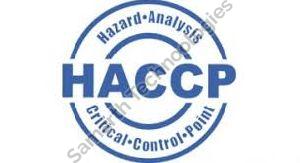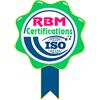
HACCP Consultancy
Get Price Quote
HACCP (Hazard Analysis Critical Control Point) is the systematic preventative approach to food safety. It addresses physical, chemical, and biological hazards as a means of prevention rather than finished product inspection. This approach has significant benefits to organizations operating within the food supply chain as it enables them to determine key controls over processes and concentrate resources on activities that are critical to ensuring safe food. Retailers, the food industry and Government in particular are concerned about ensuring that food is produced safely and that the consumer has confidence in the product. This has led to an increase in legislation over time that has focused upon ensuring safe systems of food production. In the UK the 1995 Food Safety Amendment Regulations, for the first time manufacturers and providers adopted HACCP to ensure food safety.The history and background of the HACCP System : The objective is to introduce the food handlers to the history and background of the Hazard Analysis and Critical Control Point (HACCP) system and its importance as a food safety management system in identifying and controlling food safety hazards.The HACCP System for managing food safety concerns grew from two major developments. The first breakthrough was associated with W.E. Deming, whose theories of quality management are widely regarded as a major factor in turning around the quality of Japanese products in the 1950's. Dr. Deming and others developed total quality management (TQM) systems which emphasized a total systems approach to manufacturing that could improve quality while lowering costs.The second major breakthrough was the development of the HACCP concept itself. The HACCP concept was pioneered in the 1960's by the Pillsbury Company, the United States Army and the US National Aeronautics and NASA as a collaborative development for the production of safe foods for the US space programs. Pillsbury introduced and adopted HACCP as the system that could provide the greatest safety while reducing dependence on end product inspection and testing.Recognizing the importance of HACCP to food control, the 20th session of Codex Alimentarius Commission held in Geneva Switzerland adopted Guidelines for the application of Hazard Analysis Critical Control Point (HACCP).Advantages of HACCP : The HACCP system as it applies to food safety management uses the approach of controlling critical points in food handling to prevent food safety problems. The system which is science based and systematic identifies specific hazards and measures for their control to ensure the safety of food. HACCP is based on prevention and reduces the reliance on end product inspection and testing.The HACCP system can be applied throughout the food chain from the primary producer to the consumer. Besides enhancing food safety, other benefits of applying HACCP include more effective use of resources, savings to the food industry and more timely response to food safety problems. HACCP enhances the responsibility and degree of control at the level of the food industry. A properly implemented HACCP system leads to greater involvement of food handlers in understanding and ensuring food safety, thus providing them with renewed motivation in their work. Implementing HACCP does not mean undoing quality assurance procedures or good manufacturing practices already established by a company, it does, however, require a revision of these procedures as part of the systematic approach and for their appropriate integration into the HACCP plan.The application of the HACCP System can aid inspection by food control regulatory authorities and promote international trade by increasing buyer's confidence.Any HACCP system should be capable of accommodating change, such as advances in equipment design, changes in processing procedures or technological developments.Application of HACCP : While the application of HACCP to all segments and sectors of the food chain is possible, it is assumed that all sectors should be operating according to good manufacturing practices (GMPs) and the Codex General Principles of Food Hygiene. The ability of an industry segment or sector to support or implement the HACCP system depends on the degree of its adherence to these practices.The successful application of HACCP requires the full commitment and involvement of management and the workforce. It requires a multi disciplinary approach which should include, as appropriate, expertise in agronomy, veterinary health, microbiology, public health, food technology, environmental health, chemistry, engineering, etc. according to the particular situation. The application of the HACCP system is compatible with the implementation of TQM systems such as the ISO 9000 series.

ISO 22000 Haccp Consultants Services
Get Price Quote
ISO 22000 Haccp Consultants Services, ISO 31000:2009 Certification
Looking for HACCP Consultant Services Providers

HACCP Consultancy Service
Get Price Quote
HACCP Consultancy Service, ISO 14001:2004 Consultancy Service